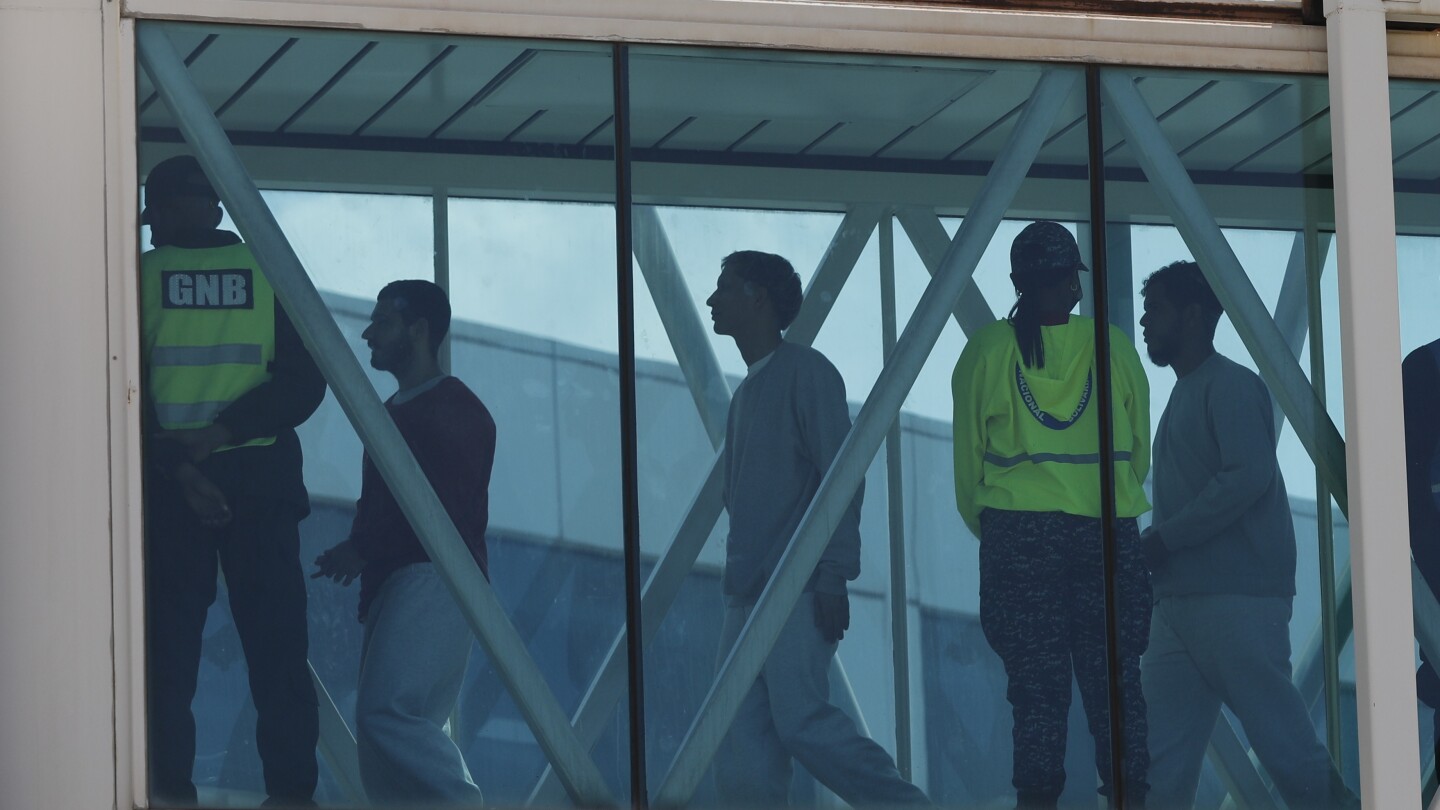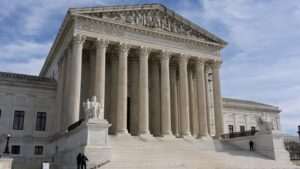In a significant development, the Supreme Court has issued a temporary halt on the deportation of Venezuelans detained in northern Texas under an antiquated law from the 18th century.
The Court’s concise order, issued on Saturday, instructs the Trump administration to refrain from deporting Venezuelans from the Bluebonnet Detention Center until further notice. Justices Clarence Thomas and Samuel Alito dissented from the decision.
This emergency intervention comes in response to an appeal by the American Civil Liberties Union (ACLU), which argued that immigration officials were attempting to resume deportations under the Alien Enemies Act of 1798. Previously, the Supreme Court had stipulated that deportations could only proceed if detainees were given the opportunity to contest their cases in court and allowed reasonable time to do so.
Lee Gelernt, an ACLU lawyer, expressed relief in an email, stating, “We are deeply relieved that the Court has temporarily blocked the removals. These individuals were in imminent danger of spending the rest of their lives in a brutal Salvadoran prison without ever having had any due process.”
The legal battle intensified as two federal judges declined to intervene on Friday, despite one judge acknowledging the case presented substantial concerns. The 5th U.S. Circuit Court of Appeals also refused to grant an order protecting the detainees early Saturday.
The administration is likely to promptly appeal to the Supreme Court to remove the temporary block. The ACLU had already filed a lawsuit to prevent the deportation of two Venezuelans at the Bluebonnet facility and sought an order barring any removals under the Alien Enemies Act in the region.
The ACLU’s emergency filing on Friday cautioned that other Venezuelan detainees were being accused of gang affiliations, specifically with the Tren de Aragua, making them targets under the Trump administration’s use of the act.
The Alien Enemies Act has rarely been invoked, with its last use during World War II to intern Japanese-American civilians. The Trump administration argued the act provided authority to expedite the deportation of immigrants identified as gang members, irrespective of their immigration status.
Following the Supreme Court’s directive on April 9, federal judges in Colorado, New York, and southern Texas rapidly issued orders to prevent deportations under the act unless detainees had the opportunity to present their cases in court. However, no such order was present in the Texas region covering Bluebonnet, located 24 miles north of Abilene.
U.S. District Judge James Wesley Hendrix, appointed by Trump, recently declined to block the deportation of the two men mentioned in the ACLU lawsuit, as Immigration and Customs Enforcement (ICE) assured they would not be immediately deported. Hendrix also refrained from issuing a broader prohibition as removals had not yet commenced.
The ACLU’s Friday filing presented sworn statements from three immigration lawyers indicating their clients were labeled as gang members, facing potential deportation by Saturday. One lawyer, Karene Brown, reported that her Spanish-speaking client was pressured to sign English documents. “ICE informed F.G.M. that these papers were coming from the President, and that he will be deported even if he did not sign it,” Brown stated.
During a Friday hearing before District Judge James E. Boasberg in Washington, D.C., Gelernt highlighted that Venezuelans were initially moved to a south Texas facility for deportation. However, following a judicial ban on deportations in that area, they were redirected to Bluebonnet. Witnesses reportedly observed detainees being loaded onto buses headed for the airport.
With Hendrix denying the emergency order, the ACLU appealed to Boasberg, who initially halted deportations in March. Boasberg expressed sympathy but noted that the Supreme Court restricted orders against deportation to judges within detainee jurisdictions, leaving him unable to act.
Boasberg recently concluded there was probable cause that the Trump administration violated his initial deportation ban, as ICE documents failed to clarify detainees’ rights to court challenges, which he believed the Supreme Court mandated.
Justice Department attorney Drew Ensign contested this, claiming detainees had “a minimum” of 24 hours to challenge deportations in court. He noted no flights were scheduled for Friday night and was unaware of any on Saturday, though the Department of Homeland Security reserved the right to proceed.
ICE declined to comment on ongoing litigation.
Separately, a Massachusetts judge solidified a ban on deporting immigrants who exhausted appeals to third countries without notifying them of their destination or allowing objections if they faced threats there. Some Venezuelans affected by Trump’s act have been deported to El Salvador, where they are held in the nation’s notorious main prison.






